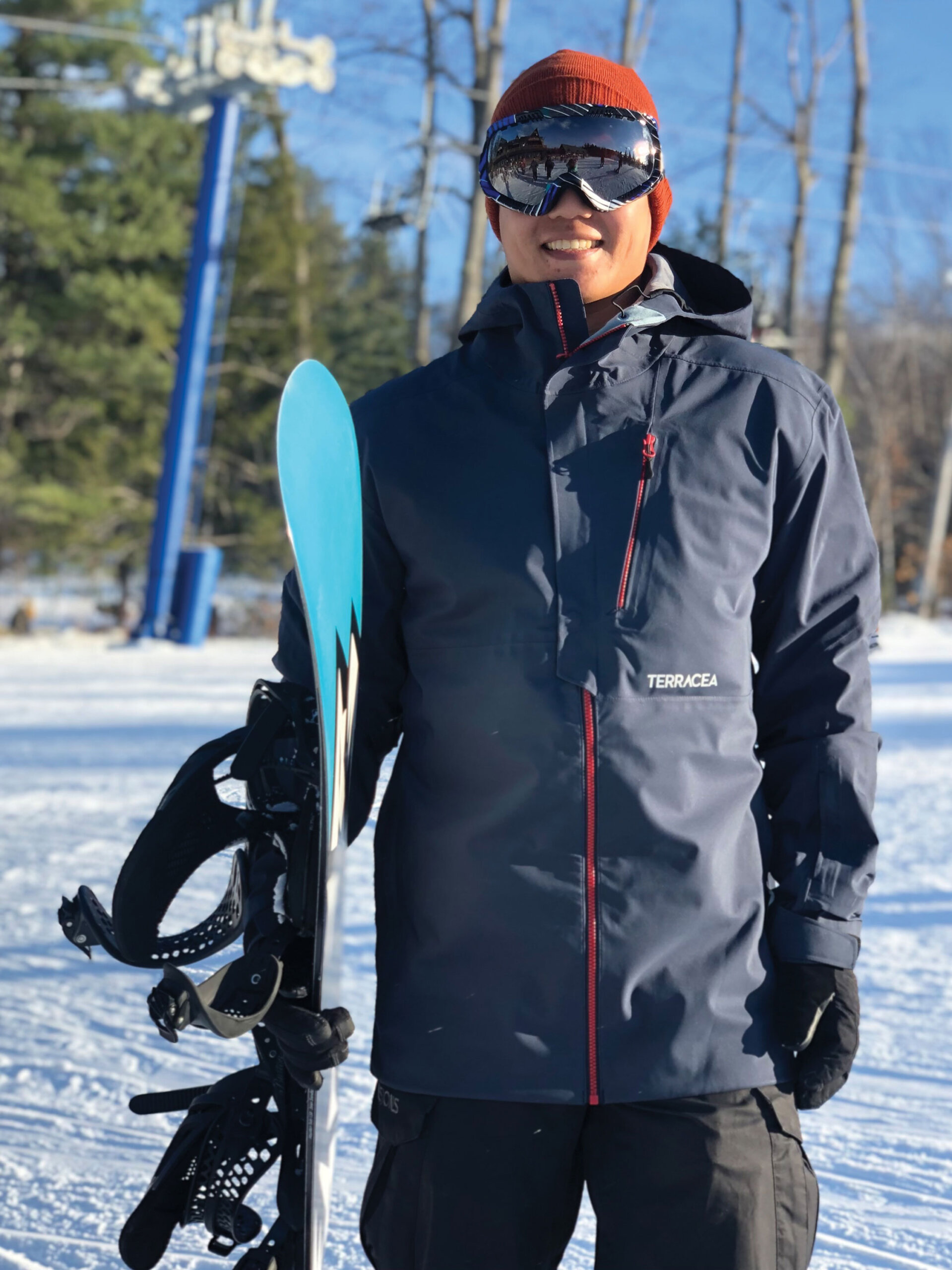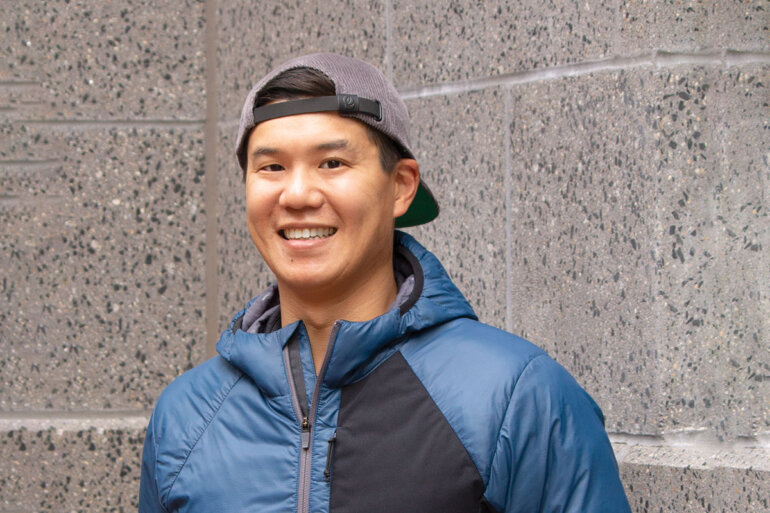Prêt à Porter from Corp. to the Slopes
As a graduate student in Boston, Eric Hui ’02 found he was no match for the chilly wind, rain and snow of New England’s seasons. The extreme weather presented a challenge: to create technical outdoor apparel that could seamlessly go from workdays in the office to weekends on the slopes. He founded his outerwear business, Terracea, in 2017 and has been innovating ever since. “We design for anyone that demands outerwear that performs well for mountain conditions, but also wants the versatility to wear the same product into work or in their everyday lives,” Hui says.

Breaking into this industry is not for the faint of heart. “It is still difficult to compete head to head with smaller and mid-sized players in the outdoor apparel industry,” he says. The company started off by doing a lot of grassroots events at the local level – flea markets, outdoor setups near shopping malls, and partnering with smaller independent ski resorts.
Hui encountered many challenges along the way – the cost of manufacturing overseas being a significant one. Terracea produces with a high-end apparel factory in Vietnam, which can translate to high minimums per style – but also into high cost per style. Then there are also the challenges of making unit economics work in a wholesale/retail model, which is how the company started out, but not matching the quantity of products you need to produce to make things efficient with demand. Hui suggests first building demand through marketing and brand building, before seeking out an initial manufacturing run. “I learned the hard way that doing the opposite leads to a very tough road ahead,” he says.
His advice to Puns who aspire to get into the apparel industry is: do your due diligence. “Make sure you check your business plan and projections with those that are veterans in your industry. In my case, I felt that I didn’t ask enough people who started brands and didn’t ask the right questions about what it would take to match both brand building as well as manufacturing,” he says. “I was solely concerned about the product creation process, and didn’t account for all of the other factors that it took to create a successful business. Make sure to network ahead of time before your first fundraising efforts, and to ask questions!”
The next step for the privately held company is to scale and grow through external fundraising in order to compete as a recognized brand through marketing efforts and brand-awareness activation events. Hui is hopeful and plans to harness his experience and network to facilitate the next stage of Terracea’s journey.
Punahou has played a significant role in Hui’s mindset. “I recall working with many great teachers during my time at the School – there were too many to name!” he says. “I believe the overall confidence boosting of being in a collaborative academic environment to openly ask questions led me to think differently once I began my entrepreneurship journey. Punahou helped me to gain the skills in public speaking, leadership and developing an analytical mindset to succeed.”

